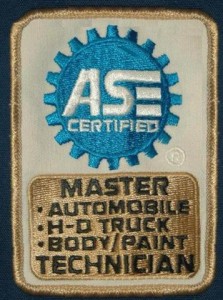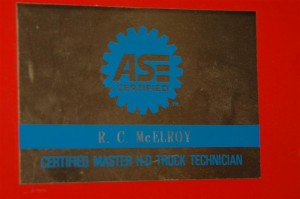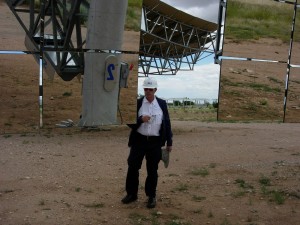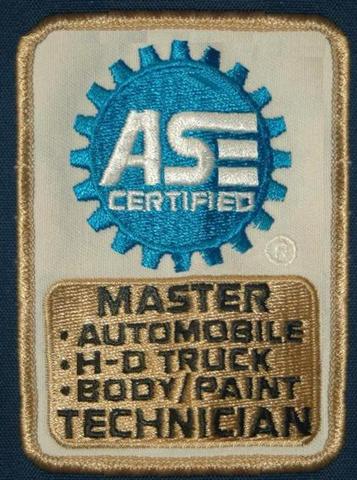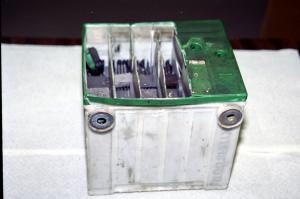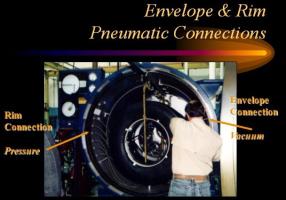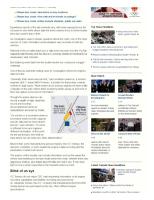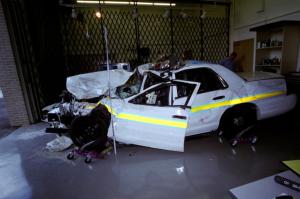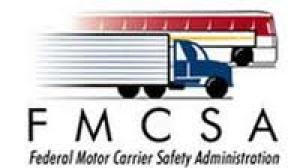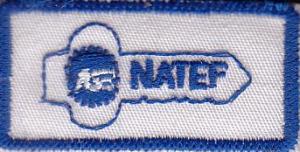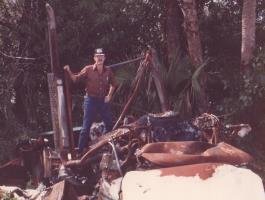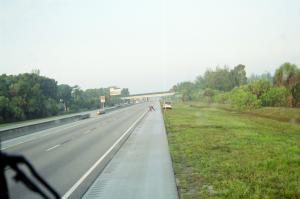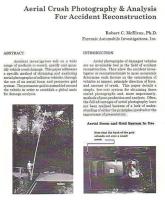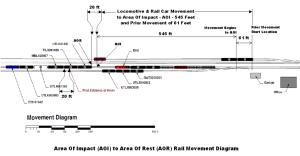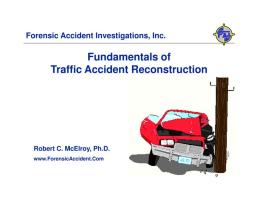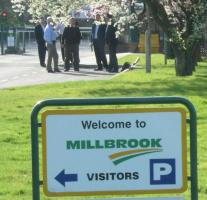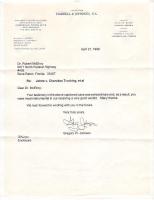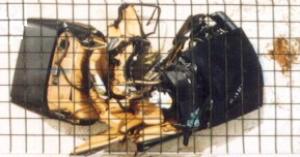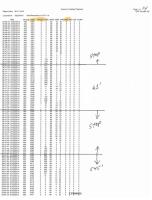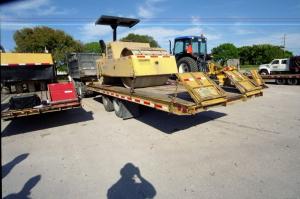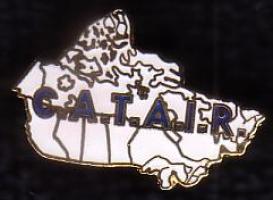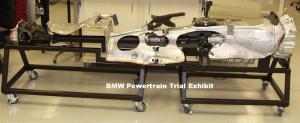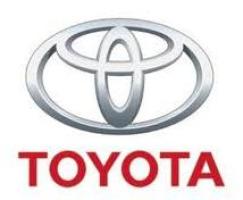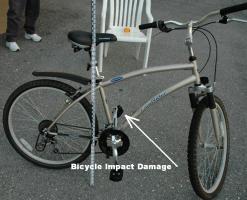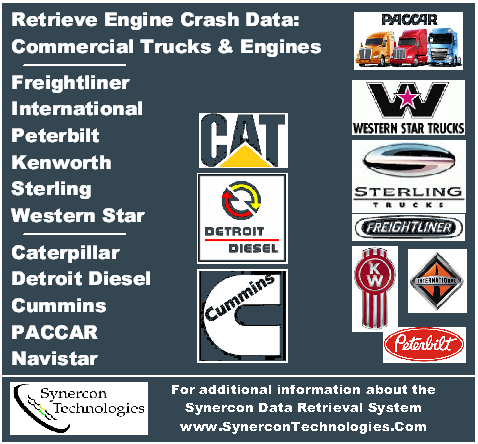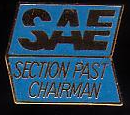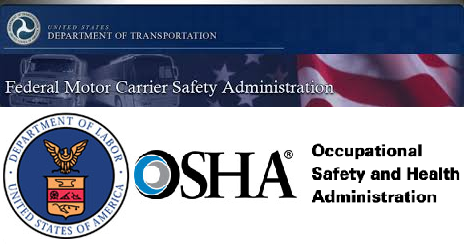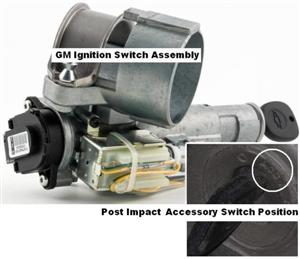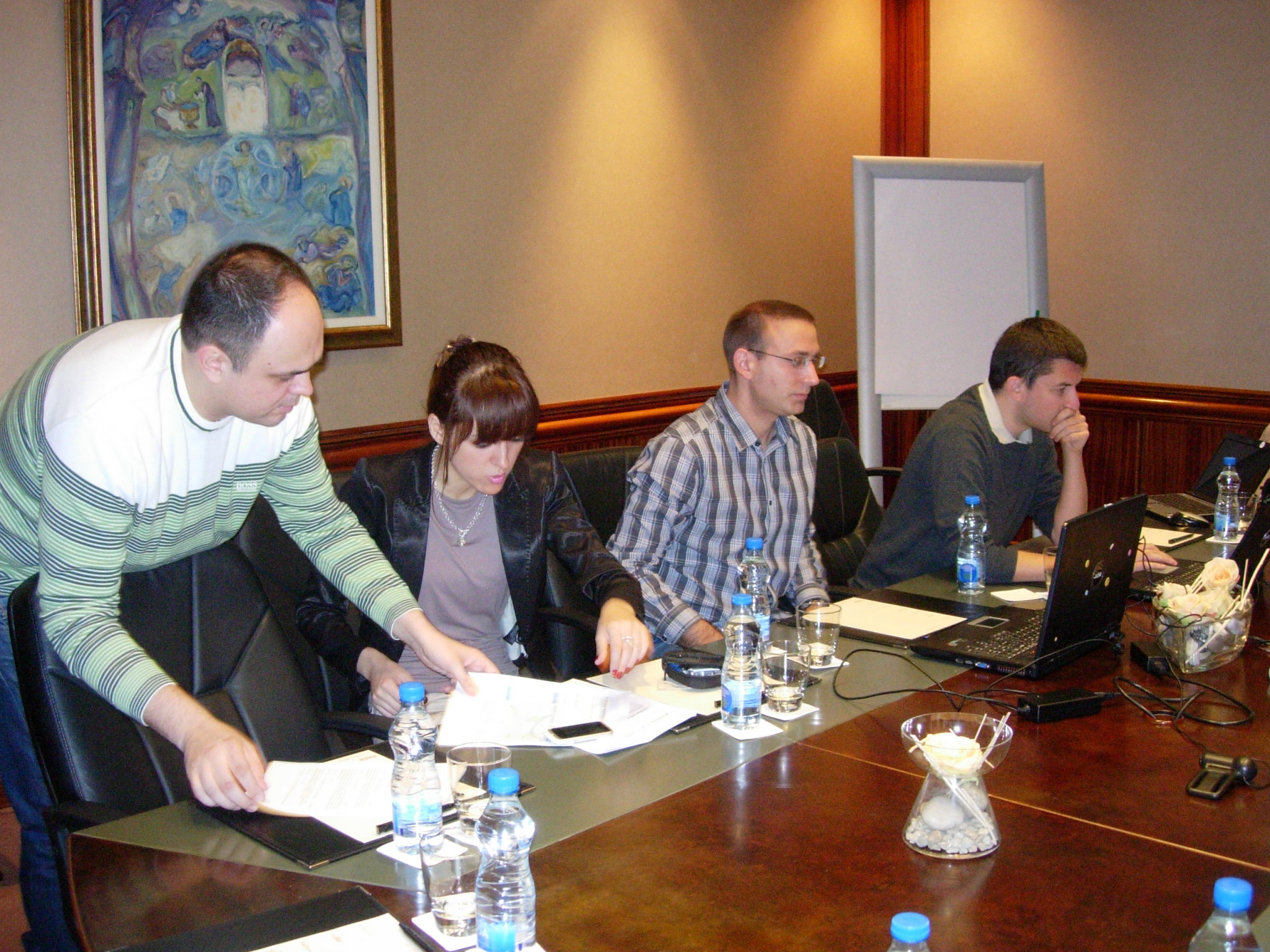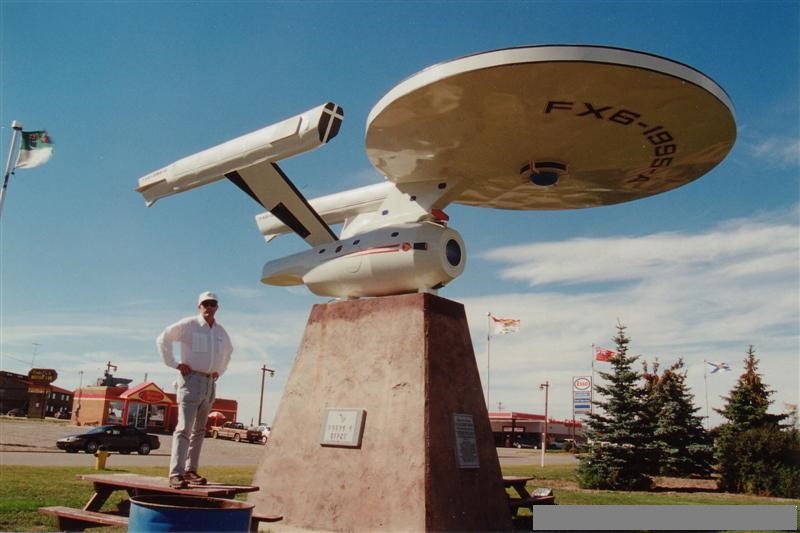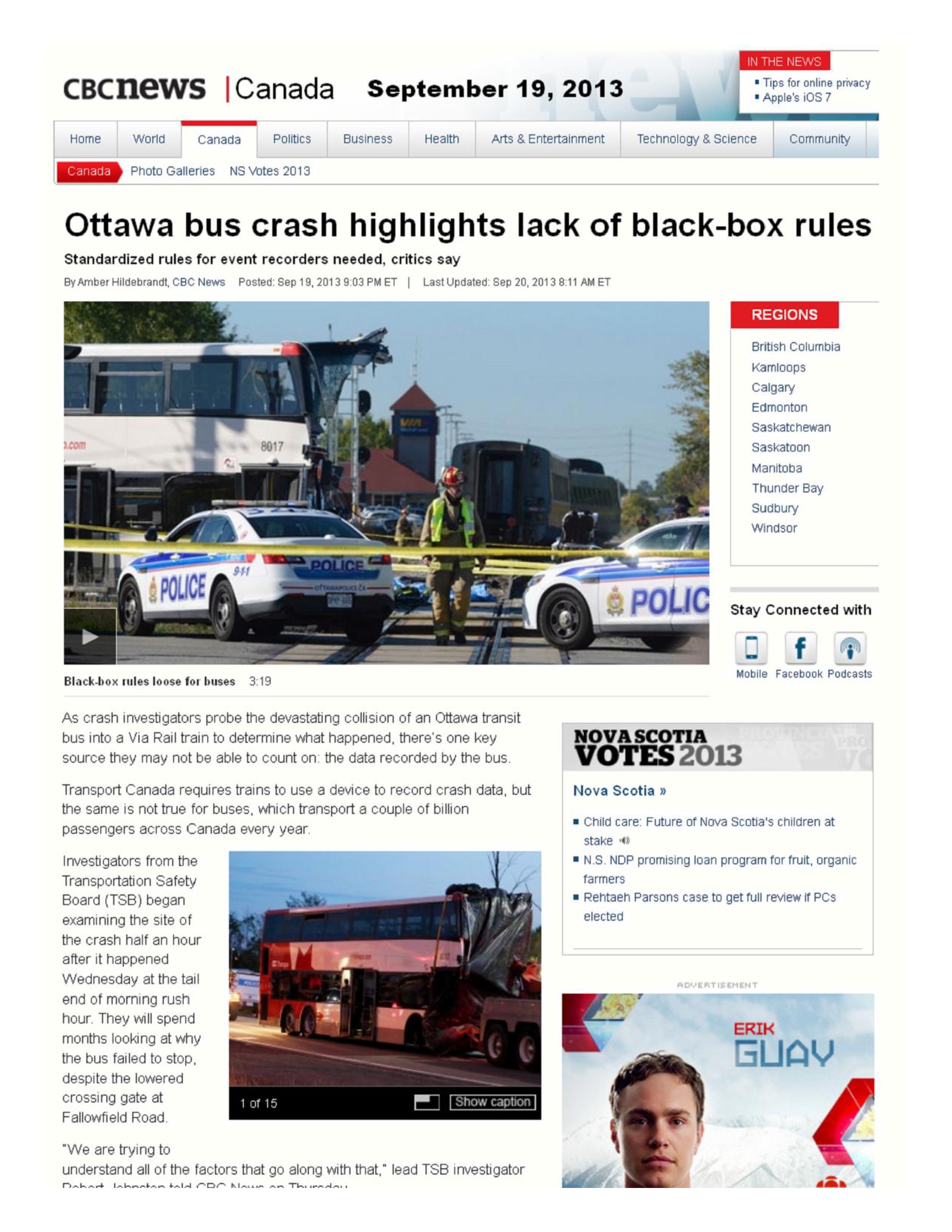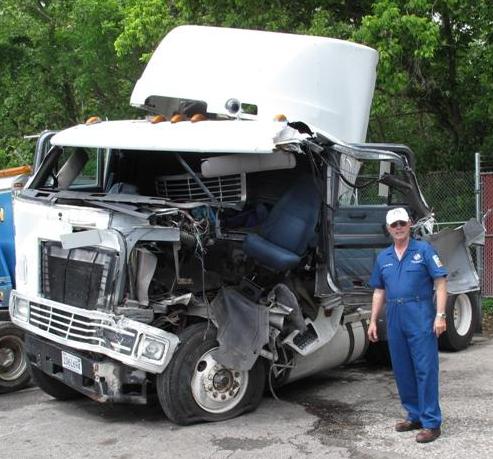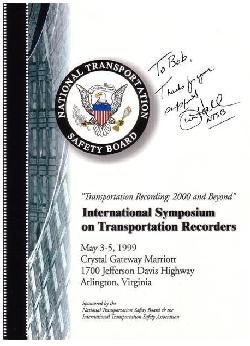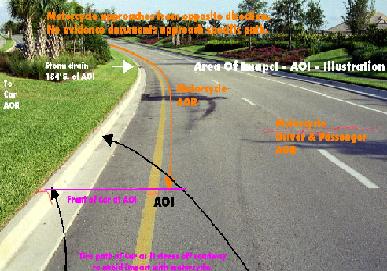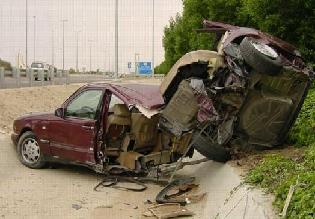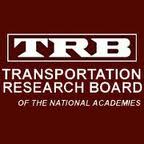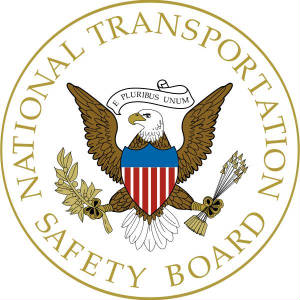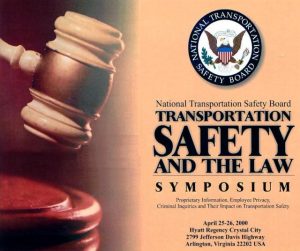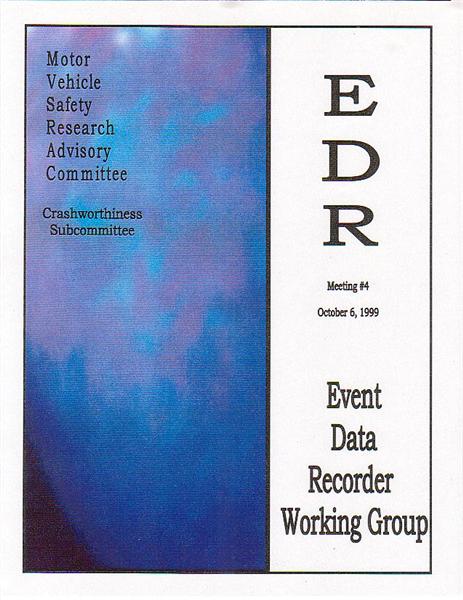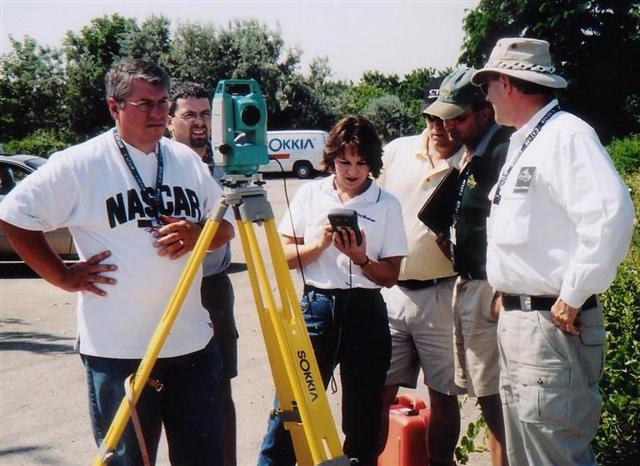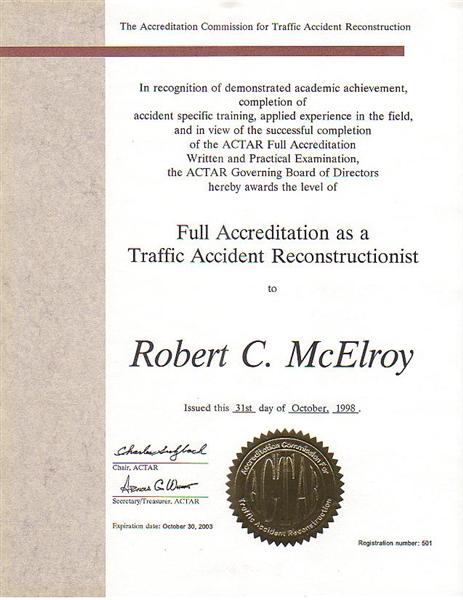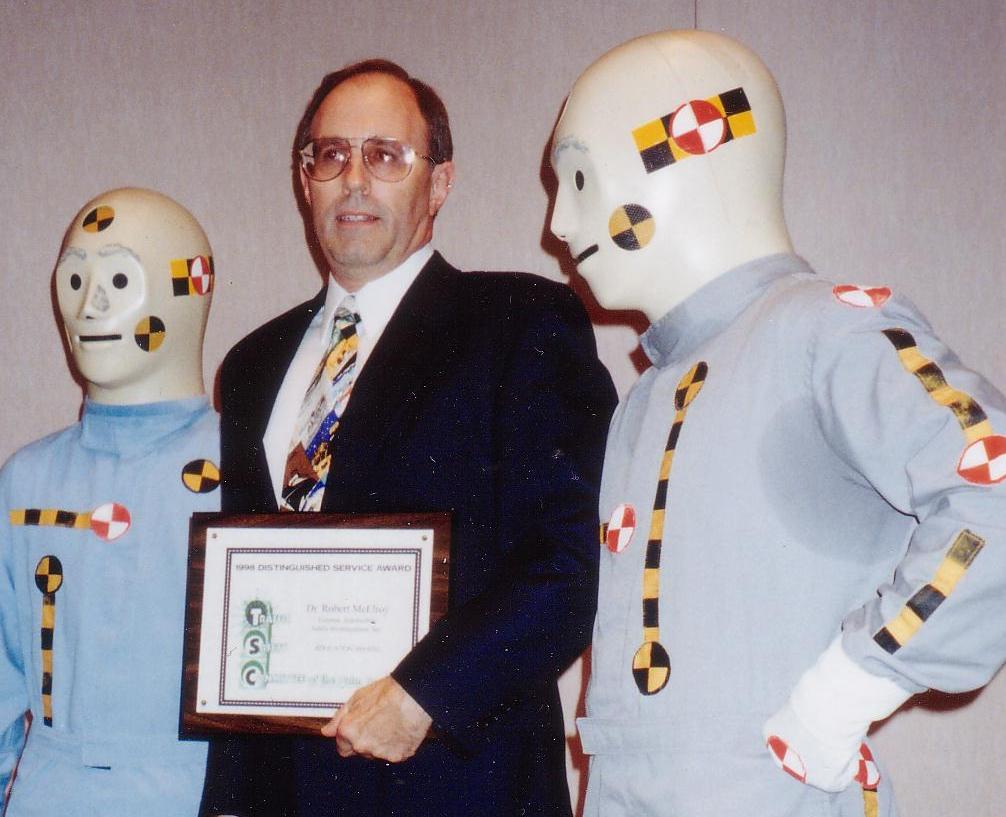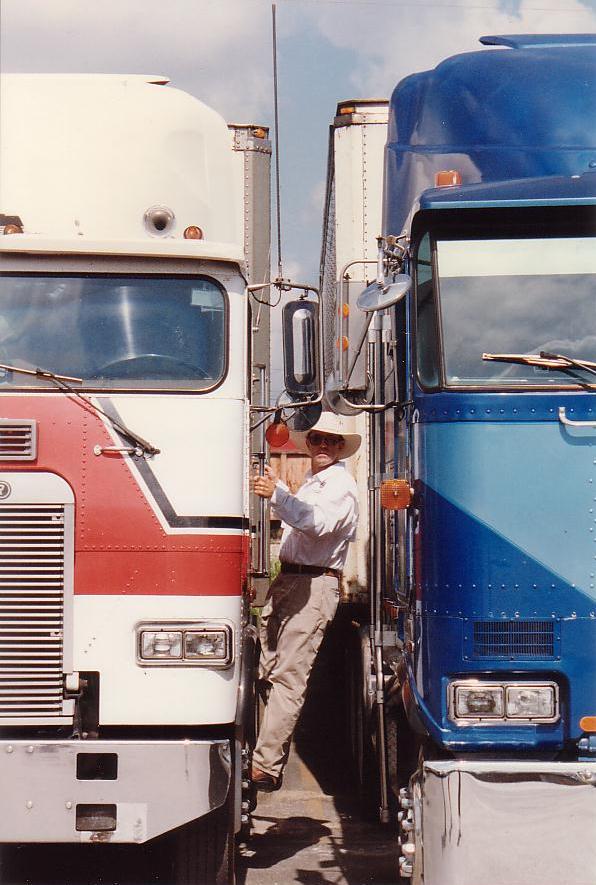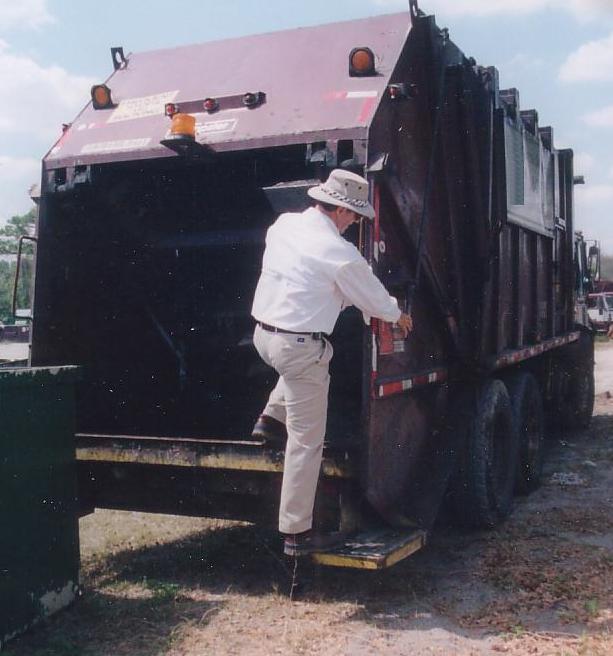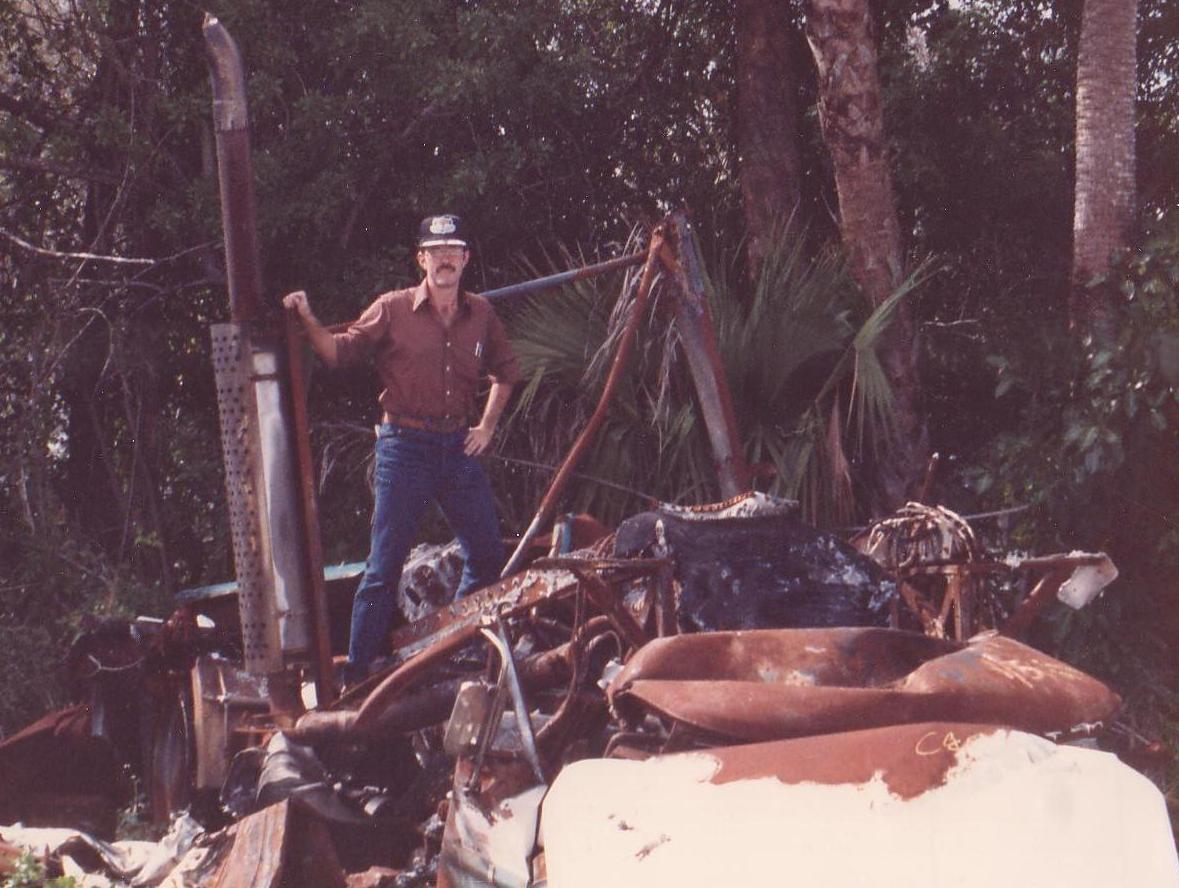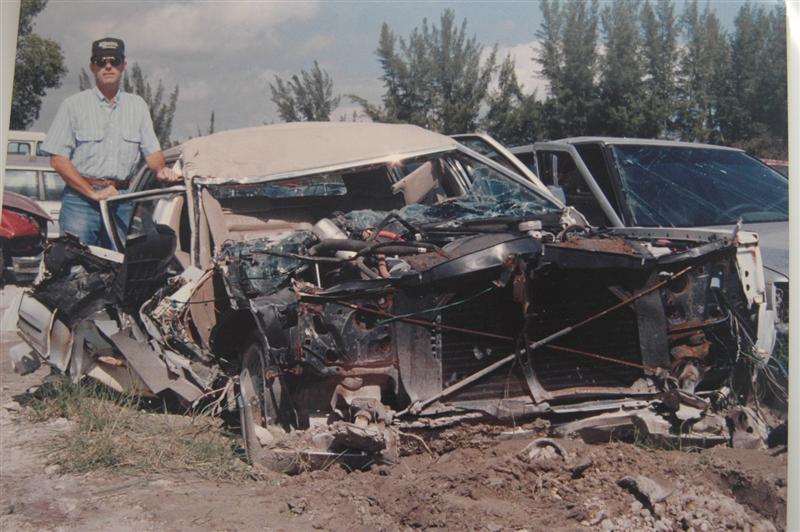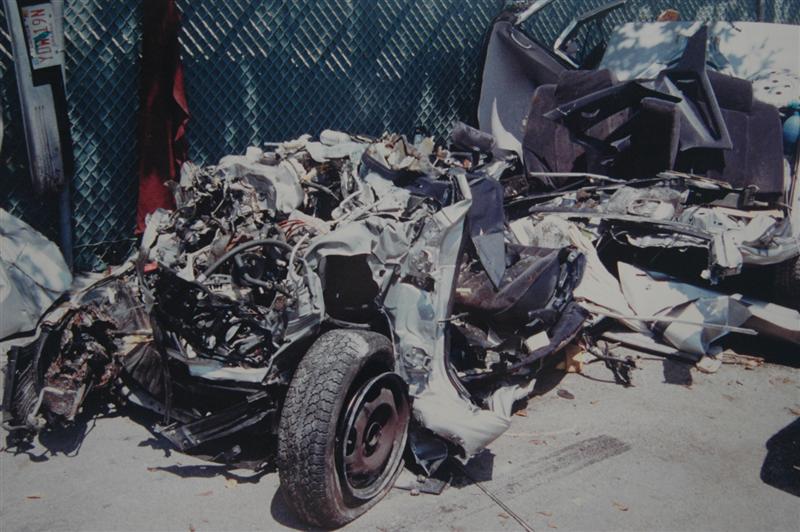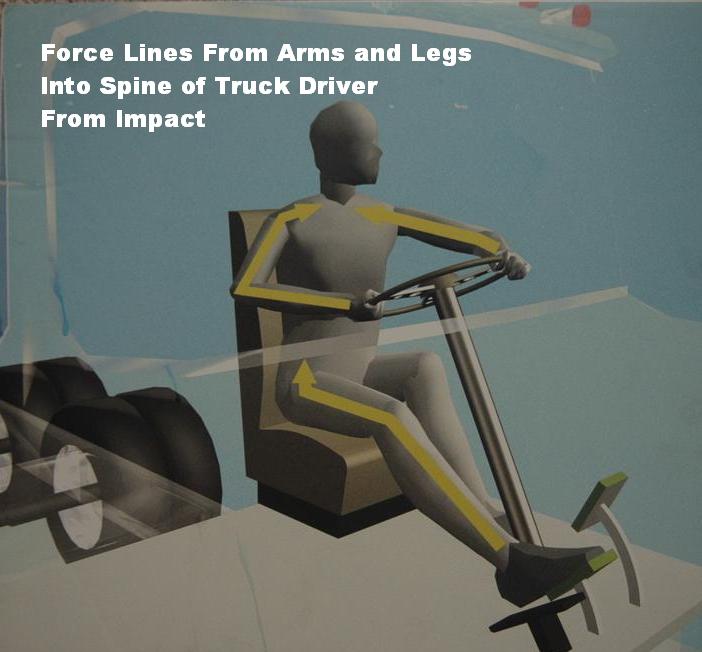EDR Introduction
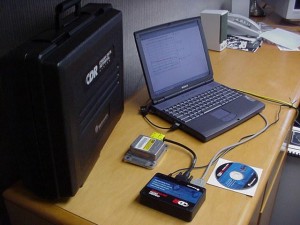 Event Data Recorders (EDR’s) are transportation devices which record unique vehicle information pertaining to an accident, crash or event. In surface transportation EDR’s can capture initial vehicle speed, speed change or delta V, brake application and accelerator application. Specific data recorded is a function of the EDR system. Original Equipment Manufacturer (OEM) EDR’s provide significant foundation information to determine key facts pertaining to vehicle movement leading up to an event. EDR’s fitted by the OEM are referred to as Type I. Type II EDR’s are fitted supplemental to the vehicle. In the event the vehicle does not have a Type I system, the Type II unit needs to also record basic information. Type II units can record significant additional information and perform other important services such as providing a driver’s eye video of what happened and Automatic Collision Notification (ACN).
Event Data Recorders (EDR’s) are transportation devices which record unique vehicle information pertaining to an accident, crash or event. In surface transportation EDR’s can capture initial vehicle speed, speed change or delta V, brake application and accelerator application. Specific data recorded is a function of the EDR system. Original Equipment Manufacturer (OEM) EDR’s provide significant foundation information to determine key facts pertaining to vehicle movement leading up to an event. EDR’s fitted by the OEM are referred to as Type I. Type II EDR’s are fitted supplemental to the vehicle. In the event the vehicle does not have a Type I system, the Type II unit needs to also record basic information. Type II units can record significant additional information and perform other important services such as providing a driver’s eye video of what happened and Automatic Collision Notification (ACN).
Collision Analysis
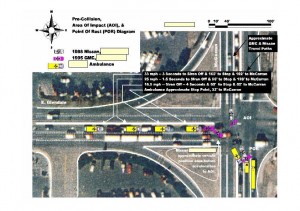
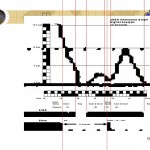 Vehicle collisions seemed to occur almost from the first moment that cars and trucks were built and put into service. Traffic Accident Reconstruction (TAR) as a specific discipline began to come together as an automotive engineering science in the period of the 1960’s to 1980’s. Scientifically analyzing wrecks evolved over decades in an attempt to both make vehicles safer in collisions and to determine what happened in the event. Improvements in the entire transportation system could not be justifiably implemented until scientists and engineers could determine what happened in the wreck. In the 1990’s it became clear that to advance surface transportation safety to the next higher level individual vehicle event data recorders were essential. Vehicle complexity with sophisticated electronics and occupant safety systems require an electronic device which can capture information about a crash and permit post crash analysis. Collisions typically occur in about one tenth of a second and the amount of data generated can require many hours of post crash analysis to determine who, what, when, where, and why an event occurred in addition to analysis required to evaluate performance of the vehicle in a particular type of crash. Sophisticated vehicles and a complex transportation system demand technology which can help researchers analyze complex crashes to not only figure out a particular wreck but to also provide foundation material from which to implement improvement in the transportation system.
Vehicle collisions seemed to occur almost from the first moment that cars and trucks were built and put into service. Traffic Accident Reconstruction (TAR) as a specific discipline began to come together as an automotive engineering science in the period of the 1960’s to 1980’s. Scientifically analyzing wrecks evolved over decades in an attempt to both make vehicles safer in collisions and to determine what happened in the event. Improvements in the entire transportation system could not be justifiably implemented until scientists and engineers could determine what happened in the wreck. In the 1990’s it became clear that to advance surface transportation safety to the next higher level individual vehicle event data recorders were essential. Vehicle complexity with sophisticated electronics and occupant safety systems require an electronic device which can capture information about a crash and permit post crash analysis. Collisions typically occur in about one tenth of a second and the amount of data generated can require many hours of post crash analysis to determine who, what, when, where, and why an event occurred in addition to analysis required to evaluate performance of the vehicle in a particular type of crash. Sophisticated vehicles and a complex transportation system demand technology which can help researchers analyze complex crashes to not only figure out a particular wreck but to also provide foundation material from which to implement improvement in the transportation system.
Consumers of Crash Data Outside Government
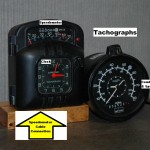 Civil and criminal litigation in addition to university, OEM, and insurance company research activities make up the bulk of consumers for crash data outside of the Federal government. Research carried out by each entity has a specific focus which ultimately will add to the body of knowledge about today’s vehicle and transportation system. Civil and criminal litigation typically focuses on the driver and what they were doing to control their vehicle at the time of the collision. Injuries and fatalities in highway collisions can result in expensive medical treatments above and beyond compensation for an individual’s personal injury or loss of mobility. It is common for financial exposure to be in the millions of dollars.
Civil and criminal litigation in addition to university, OEM, and insurance company research activities make up the bulk of consumers for crash data outside of the Federal government. Research carried out by each entity has a specific focus which ultimately will add to the body of knowledge about today’s vehicle and transportation system. Civil and criminal litigation typically focuses on the driver and what they were doing to control their vehicle at the time of the collision. Injuries and fatalities in highway collisions can result in expensive medical treatments above and beyond compensation for an individual’s personal injury or loss of mobility. It is common for financial exposure to be in the millions of dollars.
Collision Facts
Accurate data protects the public and the transportation system. Improvements in vehicles, highways, operator performance, and infrastructure require analytical assessment methods for optimal benefits. Accountability for each element in the total fabric of transportation requires data, which can be analyzed by researchers, in order that incremental improvements be implemented. Intelligent Transportation Systems (ITS) are not possible unless there is qualified and quantified data. To be optimally efficient ITS requires EDR.
Consumers Of The Data
Each segment of the entire transportation system is a consumer of the data. Scientific data is necessary to explain and address crashes and the effect of that crash on a particular segment of the transportation system.
Insurance and Litigation
If people are injured, litigation will result in today’s society. Accurate data protects just as well as it can be used for evidence to show an error. Accurate data permits law enforcement, insurance carriers, and the public to arrive at justifiable conclusions about accident events. Laws exist to provide a fair framework for our society to function. Event data, which can be analyzed by all parties, helps to expedite post crash insurance and litigation activity. If criminal or civil charges follow a crash then insurance carriers are involved because of potential economic impact. Insurance policies are in place to provide protection for the policy holder and if a legitimate claim is made against a policy then the insurance company will make valid payments accordingly. Typically, payments made are not a problem. However, insurance companies want to be sure that all matters are handled professionally and that fraud is not an issue.
EDR’s in Conducting Crash Investigations Foundation Summary
Transportation is complex and when statistically analyzed crashes will occur. There is simply no way to eliminate all crashes. EDR is the logical way to enhance transportation safety and improve the transportation system. Although EDR cannot eliminate all crashes, EDR can logically reduce the injury component of crashes statistically. EDR technology will ultimately be able to reduce the number of crashes. From global and national perspectives EDR will have a positive impact on the number of fatal collisions because EDR will improve vehicles, infrastructure, and driver performance.
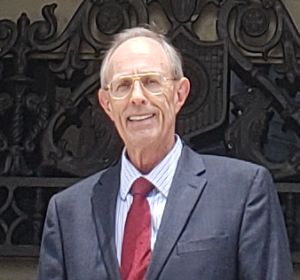 Dr. McElroy is a triple certified ASE Master Technician in Automobile, Medium / Heavy Truck, & Collision. He is a certified accident reconstructionist through ACTAR and was formerly employed by General Motors as a staff technical instructor. His degree areas are Industrial Safety Engineering, Industrial Education, and Industrial Technology..
Dr. McElroy is a triple certified ASE Master Technician in Automobile, Medium / Heavy Truck, & Collision. He is a certified accident reconstructionist through ACTAR and was formerly employed by General Motors as a staff technical instructor. His degree areas are Industrial Safety Engineering, Industrial Education, and Industrial Technology..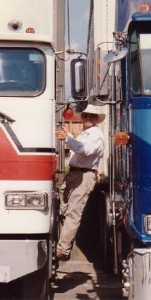 His focus is to consistently provide accurate and technically precise analysis and opinions, authoritatively presented depositions, quality trial exhibits, and reliable expert trial testimony. He has participated in approximately 1,000 depositions and 100 trials.
His focus is to consistently provide accurate and technically precise analysis and opinions, authoritatively presented depositions, quality trial exhibits, and reliable expert trial testimony. He has participated in approximately 1,000 depositions and 100 trials.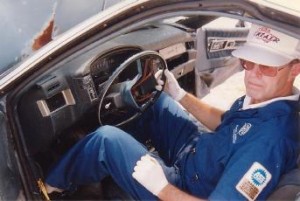 He specializes in technical failure and collision analysis related to automobiles, heavy trucks, and industrial vehicles.
He specializes in technical failure and collision analysis related to automobiles, heavy trucks, and industrial vehicles.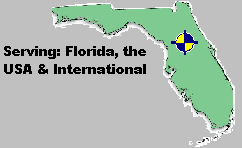 To contact Dr. Robert McElroy:
To contact Dr. Robert McElroy:
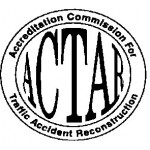
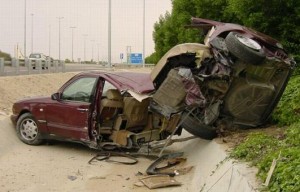
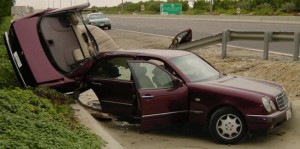
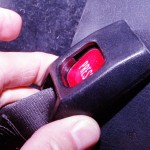 time-distance calculations
time-distance calculations Dr. McElroy specializes in motor vehicle technology and accident reconstruction. This typically entails physical inspection of the damaged vehicles, examination of the accident scene, and reconstruction of collision events using engineering calculations based primarily on momentum, energy, and restitution equations.
Dr. McElroy specializes in motor vehicle technology and accident reconstruction. This typically entails physical inspection of the damaged vehicles, examination of the accident scene, and reconstruction of collision events using engineering calculations based primarily on momentum, energy, and restitution equations.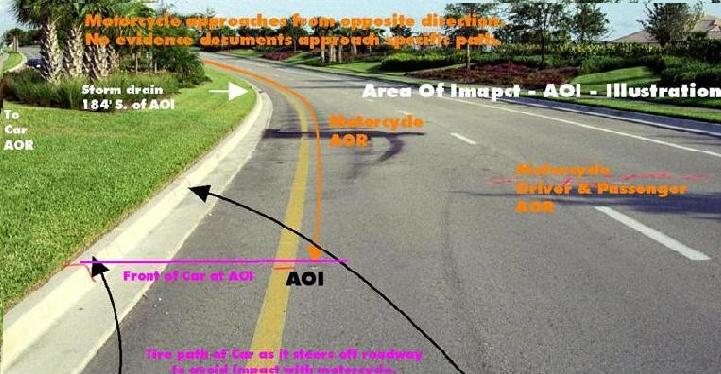
 Event Data Recorders (EDR’s) are transportation devices which record unique vehicle information pertaining to an accident, crash or event. In surface transportation EDR’s can capture initial vehicle speed, speed change or delta V, brake application and accelerator application. Specific data recorded is a function of the EDR system. Original Equipment Manufacturer (OEM) EDR’s provide significant foundation information to determine key facts pertaining to vehicle movement leading up to an event. EDR’s fitted by the OEM are referred to as Type I. Type II EDR’s are fitted supplemental to the vehicle. In the event the vehicle does not have a Type I system, the Type II unit needs to also record basic information. Type II units can record significant additional information and perform other important services such as providing a driver’s eye video of what happened and Automatic Collision Notification (ACN).
Event Data Recorders (EDR’s) are transportation devices which record unique vehicle information pertaining to an accident, crash or event. In surface transportation EDR’s can capture initial vehicle speed, speed change or delta V, brake application and accelerator application. Specific data recorded is a function of the EDR system. Original Equipment Manufacturer (OEM) EDR’s provide significant foundation information to determine key facts pertaining to vehicle movement leading up to an event. EDR’s fitted by the OEM are referred to as Type I. Type II EDR’s are fitted supplemental to the vehicle. In the event the vehicle does not have a Type I system, the Type II unit needs to also record basic information. Type II units can record significant additional information and perform other important services such as providing a driver’s eye video of what happened and Automatic Collision Notification (ACN).
 Vehicle collisions seemed to occur almost from the first moment that cars and trucks were built and put into service. Traffic Accident Reconstruction (TAR) as a specific discipline began to come together as an automotive engineering science in the period of the 1960’s to 1980’s. Scientifically analyzing wrecks evolved over decades in an attempt to both make vehicles safer in collisions and to determine what happened in the event. Improvements in the entire transportation system could not be justifiably implemented until scientists and engineers could determine what happened in the wreck. In the 1990’s it became clear that to advance surface transportation safety to the next higher level individual vehicle event data recorders were essential. Vehicle complexity with sophisticated electronics and occupant safety systems require an electronic device which can capture information about a crash and permit post crash analysis. Collisions typically occur in about one tenth of a second and the amount of data generated can require many hours of post crash analysis to determine who, what, when, where, and why an event occurred in addition to analysis required to evaluate performance of the vehicle in a particular type of crash. Sophisticated vehicles and a complex transportation system demand technology which can help researchers analyze complex crashes to not only figure out a particular wreck but to also provide foundation material from which to implement improvement in the transportation system.
Vehicle collisions seemed to occur almost from the first moment that cars and trucks were built and put into service. Traffic Accident Reconstruction (TAR) as a specific discipline began to come together as an automotive engineering science in the period of the 1960’s to 1980’s. Scientifically analyzing wrecks evolved over decades in an attempt to both make vehicles safer in collisions and to determine what happened in the event. Improvements in the entire transportation system could not be justifiably implemented until scientists and engineers could determine what happened in the wreck. In the 1990’s it became clear that to advance surface transportation safety to the next higher level individual vehicle event data recorders were essential. Vehicle complexity with sophisticated electronics and occupant safety systems require an electronic device which can capture information about a crash and permit post crash analysis. Collisions typically occur in about one tenth of a second and the amount of data generated can require many hours of post crash analysis to determine who, what, when, where, and why an event occurred in addition to analysis required to evaluate performance of the vehicle in a particular type of crash. Sophisticated vehicles and a complex transportation system demand technology which can help researchers analyze complex crashes to not only figure out a particular wreck but to also provide foundation material from which to implement improvement in the transportation system. Civil and criminal litigation in addition to university, OEM, and insurance company research activities make up the bulk of consumers for crash data outside of the Federal government. Research carried out by each entity has a specific focus which ultimately will add to the body of knowledge about today’s vehicle and transportation system. Civil and criminal litigation typically focuses on the driver and what they were doing to control their vehicle at the time of the collision. Injuries and fatalities in highway collisions can result in expensive medical treatments above and beyond compensation for an individual’s personal injury or loss of mobility. It is common for financial exposure to be in the millions of dollars.
Civil and criminal litigation in addition to university, OEM, and insurance company research activities make up the bulk of consumers for crash data outside of the Federal government. Research carried out by each entity has a specific focus which ultimately will add to the body of knowledge about today’s vehicle and transportation system. Civil and criminal litigation typically focuses on the driver and what they were doing to control their vehicle at the time of the collision. Injuries and fatalities in highway collisions can result in expensive medical treatments above and beyond compensation for an individual’s personal injury or loss of mobility. It is common for financial exposure to be in the millions of dollars.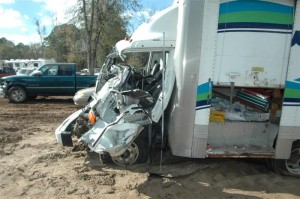
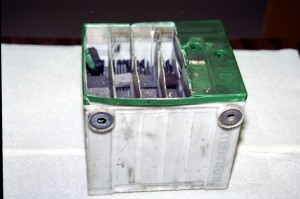
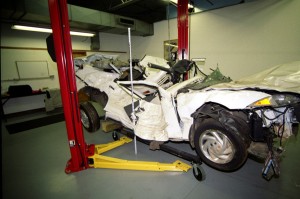
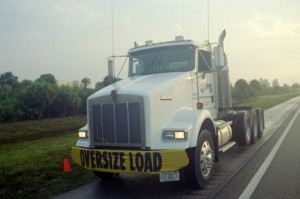 Insurance, Trucking and Vehicle Rental Industries
Insurance, Trucking and Vehicle Rental Industries